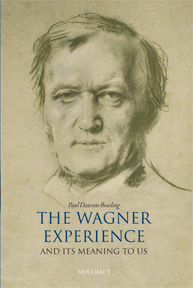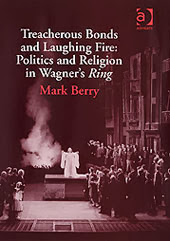Yes, its that time of year again. As always there are multiple places to listen to the Bayreuth festival live on the net but alas, should you not have any German they can be difficult to traverse. So, with that in mind we list the live performances available to listen to below. Clicking a link will take you directly to the player which should then allow you to listen to the performance - on the date specified.
Note: Clicking the link pay lead to a "popup". If so, you may need to temporarily disable any popup blocker you use for these links.
Conductor Axel Kober
Director Sebastian Baumgarten
Stage design Joep van Lieshout
Costumes Nina von Mechow
Lighting Franck Evin
Video Christopher Kondek
Dramaturgy Carl Hegemann
Choral Conducting Eberhard Friedrich
Landgraf Hermann Kwangchul Youn
Tannhäuser Torsten Kerl
Wolfram von Eschenbach Markus Eiche
Walther von der Vogelweide Lothar Odinius
Biterolf Thomas Jesatko
Heinrich der Schreiber Stefan Heibach
Reinmar von Zweter Rainer Zaun
Elisabeth, Nichte des Landgrafen Camilla Nylund
Venus Michelle Breedt
Ein junger Hirt Katja Stuber
Conductor Christian Thielemann
Director Jan Philipp Gloger
Stage design Christof Hetzer
Costumes Karin Jud
Lighting Urs Schönebaum
Video Martin Eidenberger
Dramaturgy Sophie Becker
Choral Conducting Eberhard Friedrich
Daland Kwangchul Youn
Senta Ricarda Merbeth
Erik Tomislav Mužek
Mary Christa Mayer
Der Steuermann Benjamin Bruns
Der Holländer Samuel Youn
Conductor Kirill Petrenko
Director Frank Castorf
Stage design Aleksandar Denić
Costumes Adriana Braga Peretzki
Lighting Rainer Casper
Video Andreas Deinert / Jens Crull
Wotan Wolfgang Koch
Donner Markus Eiche
Froh Lothar Odinius
Loge Norbert Ernst
Fricka Claudia Mahnke
Freia Elisabet Strid
Erda Nadine Weissmann
Alberich Oleg Bryjak
Mime Burkhard Ulrich
Fasolt Wilhelm Schwinghammer
Fafner Sorin Coliban
Woglinde Mirella Hagen
Wellgunde Julia Rutigliano
Floßhilde Okka von der Damerau
Conductor Kirill Petrenko
Director Frank Castorf
Stage Design Aleksandar Denić
Costumes Adriana Braga Peretzki
Lighting Rainer Casper
Video Andreas Deinert / Jens Crull
Siegmund Johan Botha
Hunding Franz-Josef Selig
Wotan Wolfgang Koch
Sieglinde Anja Kampe
Brünnhilde Catherine Foster
Fricka Claudia Mahnke
Gerhilde Allison Oakes
Ortlinde Dara Hobbs
Waltraute Claudia Mahnke
Schwertleite Nadine Weissmann
Helmwige Christiane Kohl
Siegrune Julia Rutigliano
Grimgerde Okka von der Damerau
Rossweisse Alexandra Petersamer
Conductor Kirill Petrenko
Director Frank Castorf
Stage Design Aleksandar Denić
Costumes Adriana Braga
Peretzki Lighting Rainer Casper
Video Andreas Deinert / Jens Crull
Siegfried Lance Ryan
Mime Burkhard Ulrich
Der Wanderer Wolfgang Koch
Alberich Oleg Bryjak
Fafner Sorin Coliban
Erda Nadine Weissmann
Brünnhilde Catherine Foster
Waldvogel Mirella Hagen
Conductor Andris Nelsons
Director Hans Neuenfels
Stage Design Reinhard von der Thannen
Costumes Reinhard von der Thannen
Lighting Franck Evin
Video Björn Verloh
Dramaturgy Henry Arnold
Choral Conducting Eberhard Friedrich
Heinrich der Vogler Wilhelm Schwinghammer
Lohengrin Klaus Florian Vogt
Elsa von Brabant Edith Haller
Friedrich von Telramund Thomas J. Mayer
Ortrud Petra Lang
Der Heerrufer des Königs Samuel Youn
1. Edler Stefan Heibach
2. Edler Willem Van der Heyden
3. Edler Rainer Zaun
4. Edler Christian Tschelebiew
Conductor Kirill Petrenko
Director Frank Castorf
Stage Design Aleksandar Denić
Costumes Adriana Braga
Peretzki Lighting Rainer Casper
Video Andreas Deinert, Jens Crull
Choral Conducting Eberhard Friedrich
Siegfried Lance Ryan
Gunther Alejandro Marco-Buhrmester
Alberich Martin Winkler
Hagen Attila Jun
Brünnhilde Catherine Foster
Gutrune Allison Oakes
Waltraute Claudia Mahnke
1. Norn Okka von der Damerau
2. Norn Claudia Mahnke
3. Norn Christiane Kohl
Woglinde Mirella Hagen
Wellgunde Julia Rutigliano
Floßhilde Okka von der Damerau
 Richard Wagner presents Lohengrin
Richard Wagner presents Lohengrin 













































